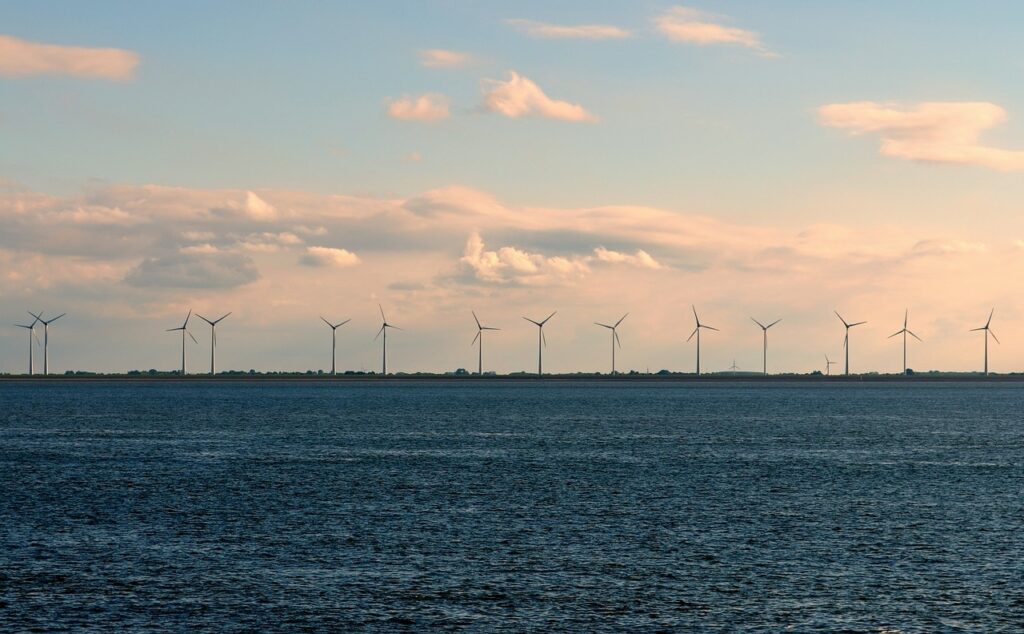The volatility in wholesale power prices due to exposure to global gas prices has demonstrated the need to diversify and decarbonise the UK’s domestic energy system.
The Association for Renewable Energy and Clean Technology (REA) has called for a faster transition to renewables to counter the challenges seen in the energy market over the past few weeks in particular.
Since January, gas prices have risen by 250% according to industry group Oil & Gas UK, with a 70% increase since August alone. The UK’s energy network currently relies on natural gas for half of its electricity generation, and 60% of this imported according to the Department for Business, Energy and Industrial Strategy (BEIS), leaving it exposed to global scarcity and shifts.
Along with the gas prices, the wholesale power market is being impacted by lower than average wind generation for this period of the year, together with a number of outages including the IFA interconnector being down following a fire – it is now expected to remain completely offline until 23 October, then run at half capacity until 27 March 2022.
These have been key causes of the record high power prices seen in the UK, hitting record peaks in the day-ahead auctions of £1,675.30/MWh for EPEX and £1,750/MWh for Nordpool for 14 September for example.
“The ever-present risk of high and volatile natural gas prices demonstrates the importance of a diverse decarbonised energy system – using all the different renewable and clean technologies available to us, including bioenergy, energy storage and marine, all working together to ensure a resilient system and lowering exposure to international prices and lowering emissions,” Frank Gordon, director of policy at the REA said. “We must also have a renewed focus on energy efficiency and insulating our homes to reduce our overall energy usage as a first step.”
The high energy prices have laid bare challenges within Britain’s supplier market, with four small suppliers – namely People’s Energy, Utility Point, PfP Energy and MoneyPlus Energy – ceasing to trade in the last two weeks.
Even some larger suppliers are feeling the pinch brought about by the wholesale price jump, with Bulb – the UK’s sixth biggest energy company – looking for additional funding following a consistent period of loss.
With winter approaching, industry experts have been predicting that this is just the tip of the iceberg. Research from Baringa for the Times, for example, suggests that 39 more suppliers could fail in the next 12 months, which would leave just 10 in the market.
“It’s an extraordinary time in the market,” said Good Energy’s chief executive Nigel Pocklington. “The risky approach so many new entrants have taken, pricing below cost, is now coming home to roost. Unfortunately the impacts will be felt by both customers and the more prudent suppliers in the market.”
In response to this period of volatility, energy secretary Kwasi Kwarteng similarly highlighted the need for an increasing in renewables to reduce the risk of volatile power prices. Additionally, he called crisis talks with suppliers and industry bodies to discuss the impact of the current high gas prices.
“We want to be clear that this is not an issue of supply – the United Kingdom benefits from having a diverse range of gas supply sources with capacity that can more than meet demand,” Kwarteng, and Ofgem chief executive Jonathan Brearley, said in a joint statement.
They continued to say that there was an “overarching consensus” amongst the groups that attended a roundtable held by Kwarteng yesterday (21 September) that “the top priority must be ongoing support for energy customers, especially the elderly and vulnerable”.
“In the event an energy supplier fails, we are committed that consumers face the least amount of disruption possible – and there are clear and well-established processes in place to ensuring this is the case.”
Over the coming days, more talks will be held with smaller and challenger energy suppliers to set out the next steps for protecting customers and suppliers. Central to this will be a continued commitment to keeping the price cap in place.
Ofgem announced in August that the cap would rise from 1 October to manage the growth in wholesale power prices. Customers on default tariffs will see an increase of £139 from £1,138 to £1,277, while prepayment customers will see an increase of £153, with their annual bills rising from £1,156 to £1,309.
“Customers should not worry,” a statement from Octopus Energy added. “The government’s energy price cap is doing its job and protecting them against price spikes. The industry, including Octopus Energy, has worked closely with Ofgem and the government in the past when supplier failures have happened and there is a well-oiled process in place. Customers whose suppliers have been affected should stay where they are and wait for their new supplier to get in touch.”





